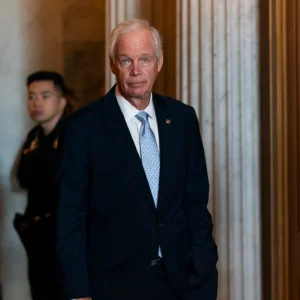Republicans currently hold 53 of the 100 Senate seats, leaving Senate Republican Leader John Thune (R-S.D.) with little margin for error; he cannot afford more than three defections if he wants the reconciliation bill to reach Trump’s desk. Yet, even among Republicans, the bill’s specifics have sparked disputes between different factions within the party, Alternet reported.
Besides Johnson’s and Paul’s stated opposition over concerns about the deficit and debt ceiling, any substantial effort to reduce federal funding for Medicaid, the health insurance program for low-income and disabled Americans, could further erode Republican support. Sen. Josh Hawley (R-Mo.) said this week in a New York Times op-ed that he would oppose any reconciliation bill containing Medicaid cuts, citing the high proportion of Medicaid beneficiaries in his state and calling such cuts “morally wrong and politically suicidal.”
Conversely, if the bill does not sufficiently reduce safety net programs like Medicaid, it may fail to pass the House of Representatives altogether. CNN reported that Rep. Chip Roy (R-Texas), a member of the conservative House Freedom Caucus, has made his support contingent upon significant Medicaid cuts and the rollback of former President Joe Biden’s Inflation Reduction Act (IRA).
“Does the bill meaningfully reduce the deficit?.. Does the bill offer ANY transformative changes on Medicaid or otherwise?.. Does the bill fully repeal the IRA to stop the devastatingly bad projects being implemented in my district?” Roy wrote on X. ” …Does the bill fix judicial abuses preventing implementation of the President’s agenda to deport?”
The White House on Sunday published details of what could be a historic trade deal with China, the world’s No. 2 economy, after Trump imposed a series of crippling tariffs aimed at resetting economic conditions between both nations.
“Today, on the heels of the brand-new deal with the United Kingdom, President Donald J. Trump reached an agreement with China to reduce China’s tariffs and eliminate retaliation, retain a U.S. baseline tariff on China, and set a path for future discussions to open market access for American exports,” says a “fact sheet” statement on the deal following two days’ worth of negotiations in Geneva, Switzerland.
“For too long, unfair trade practices and America’s massive trade deficit with China have fueled the offshoring of American jobs and the decline of our manufacturing sector,” the statement added. “In reaching an agreement, the United States and China will each lower tariffs by 115% while retaining an additional 10% tariff. Other U.S. measures will remain in place.”
The statement says that both nations will adopt the new measures on Wednesday, May 14. For now, however, the tariff rollback is for 90 days.
“China will remove the retaliatory tariffs it announced since April 4, 2025, and will also suspend or remove the non-tariff countermeasures taken against the United States since April 2, 2025,” the fact sheet says. “China will also suspend its initial 34% tariff on the United States, it announced on April 4, 2025, for 90 days, but will retain a 10% tariff during the period of the pause.”




